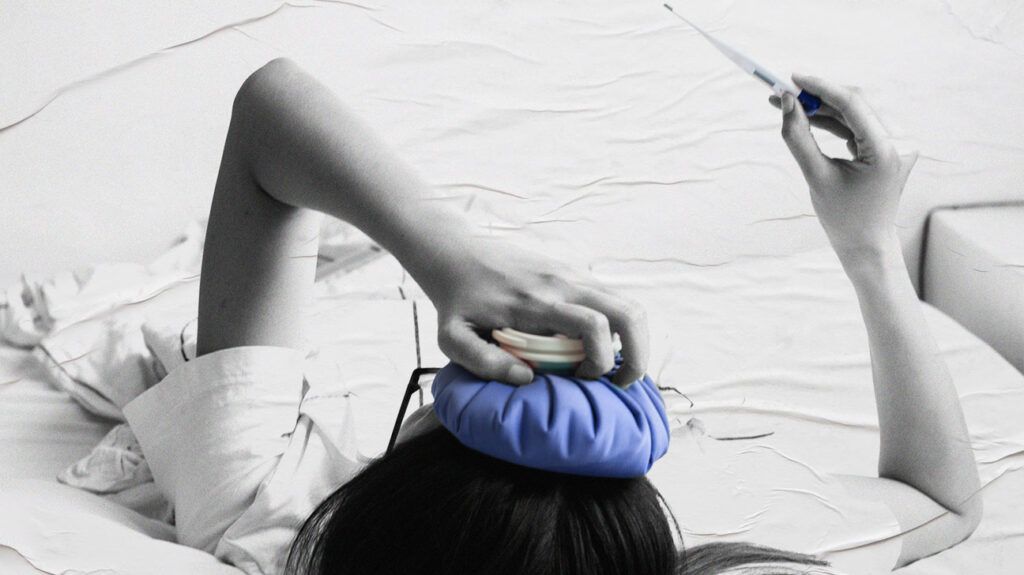Boils and cellulitis are distinct skin conditions, but both can occur due to bacterial infections. Doctors may prescribe antibiotics to treat cellulitis, and home remedies, such as a warm compress, to encourage boils to drain.
Cellulitis is a bacterial infection of the skin and the tissue beneath it. It typically occurs when bacteria enter through a break in the skin, such as a cut, scrape, insect bite, or surgical incision.
Both cellulitis and boils can cause the affected skin area to become red, swollen, warm, and painful. A boil may lead to cellulitis, but cellulitis does not typically cause boils.
Cellulitis can spread rapidly and may be accompanied by fever and chills. It is a serious condition that requires prompt treatment with antibiotics to prevent the infection from spreading to the bloodstream or other parts of the body.
This article explains the difference between cellulitis and boils, including how to recognize them, treatments, and when to see a doctor.

Cellulitis and boils are distinct conditions, but they are related in the sense that bacterial infections cause both. However, cellulitis does not cause a boil.
Boils are localized infections of a hair follicle that produce a painful, pus-filled bump under the skin. The bacteria Staphylococcus aureus
Cellulitis is a more diffuse, deeper infection of the skin and subcutaneous tissue. Streptococcus or Staphylococcus bacteria entering through a break in the skin
The condition does not form boils, but the presence of a boil or other skin infection
Recognizing the symptoms of these conditions can help a person identify whether they have a boil or cellulitis.
| Cellulitis | Boils |
|---|---|
| typically spreads across a large area of skin | typically confined to a small area |
| can cause fever, chills, and fatigue | may cause fever if a carbuncle develops |
| causes widespread redness and swelling | causes a red, pus-filled lump |
| skin may be tender and warm to the touch | affected area is increasingly tender as infection progresses |
Boils
Cellulitis symptoms
The first-line treatment for cellulitis is oral antibiotics for
Close monitoring is important to ensure the infection responds to treatment. A person should immediately report any worsening of symptoms or spread of redness to a healthcare professional.
Doctors will also typically advise a person to keep the area clean and dry, and may suggest elevating the affected limb to reduce swelling.
Boil treatment
Doctors may prescribe antibiotics if a person has a severe infection or symptoms such as a fever.
How long does a cellulitis abscess last?
Cellulitis
Severe abscesses may require surgical drainage. Healing time can depend on factors such as:
- the size and severity of the abscess
- the type of bacteria causing the infection
- a person’s overall health and immune system function
It is important to follow the prescribed treatment plan and keep follow-up appointments. If the abscess is not improving or symptoms worsen, prompt medical attention is necessary.
Sometimes, people with cellulitis require hospitalization, especially if the infection is severe or they have underlying health conditions.
The outlook for both boils and cellulitis largely depends on the severity of the infection, the promptness of treatment, and the person’s overall health.
Boils
Boils,
- respond to home care with warm compresses and proper hygiene
- drain and heal within a few weeks
- rarely lead to complications if they are small and a person properly cares for them
However, complications can arise, especially if the boils are large or if the person has a weakened immune system.
Cellulitis
The outlook for cellulitis can be more variable and potentially serious.
However, without treatment, cellulitis can become dangerous. The infection may spread to the lymph nodes and bloodstream,
Recurrent episodes of cellulitis
Cellulitis requires antibiotic treatment. People should speak with a doctor if they have symptoms, including skin redness, swelling, and fever.
Boils may drain by themselves with proper home care. However, if boils are large or there are severe symptoms, people should contact a doctor to discuss treatment options.
A person should
- rapid spreading of redness
- severe pain
- high fever
- confusion
- rapid heartbeat
Boils and cellulitis are distinct skin conditions that can both occur due to a bacterial infection. In some cases, a person with a boil may develop cellulitis.
Both conditions can cause tenderness, redness, and swelling. However, cellulitis affects deeper layers of the skin, while boils typically affect hair follicles.
Boils and cellulitis can worsen or lead to more serious complications without proper treatment. If a person suspects either a boil or cellulitis, they should see a doctor, especially if symptoms worsen quickly or include a fever.


